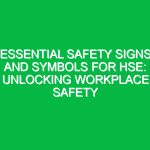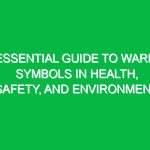Welcome team! Today, we are going to discuss an essential topic that plays a crucial role in ensuring our safety at work: Excavation Safety. Excavation work poses various risks, and it’s vital that we are well-informed and equipped to handle these challenges effectively. Let’s dive into some excavation safety tips to create a safe working environment for all of us.
The Importance of Excavation Safety
Excavation safety is paramount in preventing accidents, injuries, and even fatalities in the workplace. By following proper safety protocols and guidelines, we can minimize risks and create a secure environment for everyone involved in excavation work.
Key Aspects of Excavation Safety
Excavation safety involves various key aspects, including:
- Proper Planning: Before starting any excavation work, a thorough plan should be in place to identify potential hazards and establish safety measures.
- Protective Systems: Implementing proper protective systems such as trench boxes, shoring, or sloping to prevent cave-ins and other accidents.
- Training and Awareness: Ensuring that all employees involved in excavation work are adequately trained on safety procedures and are aware of potential risks.
Potential Hazards in Excavation Work
Some of the potential hazards in excavation work include:
- Cave-Ins: One of the most significant risks in excavation work, which can lead to serious injuries or fatalities.
- Utility Strikes: Accidentally hitting underground utilities like gas pipes or electrical lines, posing a danger to workers.
- Falling Objects: Objects falling into excavations can cause injuries to workers below.
Best Practices for Excavation Safety
To ensure excavation safety, it’s essential to follow these best practices:
- Inspect the Work Area: Before starting work, inspect the excavation site for any potential hazards.
- Use Protective Equipment: Wear appropriate personal protective equipment (PPE) such as hard hats, gloves, and safety boots.
- Communicate Effectively: Maintain clear communication with your team members to ensure everyone is aware of safety procedures.
Regulations and Compliance
It is crucial to adhere to all relevant regulations and standards related to excavation safety, as non-compliance can lead to legal consequences and jeopardize the well-being of all involved. Make sure to familiarize yourself with the specific rules and guidelines that apply to our work environment.
Conclusion
In conclusion, excavation safety is a shared responsibility that requires the commitment and vigilance of each team member. By following proper safety protocols, staying alert, and working together, we can create a safe workplace for everyone. Thank you for your attention and dedication to maintaining a secure environment. Let’s prioritize safety in all our excavation work moving forward!


